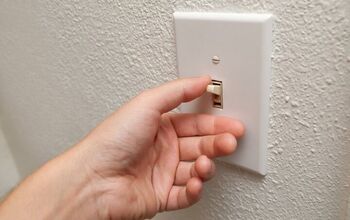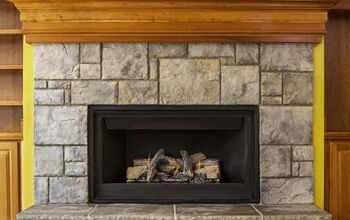What Are Homeowner's Rights For Home Inspections? (Find Out Now!)

As a home buyer, you have the option of a home inspection before the purchase. Once you buy the home, issues may arise that were not in the inspection report. Problems may be minor or the house may suffer significant damage. Understanding your rights for home inspections helps you decide the best course of action.
New homeowners have rights for damages caused by issues that were not identified in the home inspection report. In some cases, the inspector may be liable. In other cases, the seller or builder may be liable. Speaking with an attorney is the best way to understand your homeowner’s rights for home inspections.
Let’s take a closer look at home inspections and how to best handle any damage after you purchase the home.
Do You Need Home Inspection Services?
Get free, zero-commitment quotes from pro contractors near you.

What are Home Inspections?
Home inspections look at the structure of the home and the major systems. Depending on the size of the property, the inspection takes 2 to 4 hours. The report is complete within 1 to 2 business days.
- Heating, cooling, electrical, and plumbing
- Foundation
- Roof
- Walls, floors, and ceilings
- Attic and basement
- Windows and doors
- Insulation that is visible
Home Inspector vs. Appraiser
Mortgage lenders require appraisals before making a loan offer for the property. The appraiser determines the value of the home. The report may include problems with the home and property that affect the value, but this is not required.
A home inspector works for the buyer. It is up to the buyer to decide whether or not to proceed with the purchase. Buyers may also use the home inspection report to include contingencies in the purchase or negotiate a lower selling price.
Some home sellers have home inspections before they put the property on the market. The seller may decide to fix the problems. At a minimum, the seller knows beforehand the types of issues that may be discussed during negotiations.
Why Home Inspections are Important
Home inspections inform buyers of problems that they need to address in the future. It may be within the next year or several years in the future. A good home inspector lets you know the approximate timeline for the repairs. Occasionally, the home inspector may provide a rough estimate of the cost.
Choosing the Home Inspector
Like other professions, home inspectors are certified professionals with specialized training. Choose a home inspector who follows the standards of the American Society of Home Inspectors (ASHI). In addition to standards for home inspections, ASHI defines a code of conduct for professional home inspectors.
Additionally, look for a home inspector with experience and good reviews. As your friends, family, neighbors, and co-workers for recommendations. Experience really counts for home inspections. Some issues take a keen eye and in-depth knowledge of home systems and architecture.
Legal Rights and Home Inspections
If you buy a home and suffer damages due to the condition of the structure, systems, or property, you may have some legal rights. Speak with an attorney before you contact the seller, builder, or home inspector.
Laws vary by state with regard to damages suffered after purchasing a home. The primary consideration is that it needs to be a material defect. Also, you have to prove that the seller, builder, or home inspector knew about the problem, but did not tell you when you bought the property.
Material defects are defined under the law as serious issues that affect the value, safety, and integrity of the property. Examples of material defects are:
- Termites
- Roof and ceiling leaks
- Unstable foundation or significant cracks in the concrete
- Unsafe electrical system
- Mold, asbestos, radon, and lead
- Large leaks in the plumbing
- Water damage
Home Inspector Liability
With regards to home inspectors, your case needs to prove professional malpractice or negligence. For example, if you can prove that the inspector did not follow professional standards, you may have a case. This is a case of professional malpractice. Cases such as this is why it is so important to work with home inspectors who are certified and ASHI members. Otherwise, you have no way of proving that the inspector knowingly did not follow professional standards.
Negligence has a broader definition. Under the law, this is a failure to take steps that any reasonable inspector would take in a given situation. For example, not noting roof damage that any reasonable inspector would find and report.
Getting a second, or even third, opinion for a home inspection is incredibly valuable, even if you feel that the property is in good shape. Not only are you prepared for any legal proceedings, but you also have peace of mind.
Tips for Working with a Home Inspector
Here are some tips for working with a home inspector and getting the most out of the experience
Use a Certified Inspector
Home inspectors are certified by the American Society of Home Inspectors (ASHI). Check with your state, county, and city for additional certifications that are required for home inspectors. The home inspector should also be licensed.
Ask Questions and Take Notes
Some home inspectors allow buyers to be present during the inspection, but not all. You should receive a verbal briefing on the findings at the end of the appointment. Take notes and ask questions. You should receive a written report within 1 to 2 business days. When you receive the report, go through it carefully. Contact the inspector with any questions or concerns.
Schedule a Follow-Up Appointment
If you don’t understand something in the report, schedule a follow-up appointment and have the inspector show you the problem. The inspector may charge for the second appointment, but this is a good investment. Take photos for your records.
Get a Second Opinion
You want to feel confident about the home that you are buying. It is always wise to have a second home inspection.
Take Action Sooner Rather Than Later
If you suspect that the home inspector, seller, or builder has knowingly hidden problems with your new home or did not follow professional standards, act quickly. Contact an attorney to discuss your case. If you wait, the other party may claim that the problem got worse with time.
Related Questions
Can I refuse a home inspection?
Yes. If you are selling your home, you have the right to refuse a home inspection. The downside is that it may be more difficult to find a buyer who is willing to purchase the property.
Can I use the home inspection report for negotiations?
Yes. Many home buyers list problems found by home inspectors as part of the negotiation process. You can make a lower offer based on the report. Another approach is to list contingencies in the contract that require the seller to make certain repairs.
If the home inspection identifies issues, should I buy the home?
It depends. The best recommendation is to involve a contractor before you buy the property. This way you know when the repairs need to be made and how much it will cost.
Is the home seller required to fix problems that are found during the home inspection?
No. Home sellers are not required to make repairs for problems outlined in a home inspection report. The purpose of a home inspection is to make you aware of any serious issues that affect the stability and safety of the home.
Do You Need Home Inspection Services?
Get free, zero-commitment quotes from pro contractors near you.

Summary
A home inspection is optional when you purchase a property, but it is a wise investment. Appraisers only determine the value of the property for the mortgage lender. Any material defects may or may not be reported. Home inspectors look at every aspect of the property, such as HVAC, electrical, plumbing, roof, foundation, and more.
You can use the findings in the report to decide if you want to purchase the home. Home inspections are also valuable for negotiations. Reduce your offer or include contingencies in the purchase contract.
If you decide to proceed with the purchase, show the report to a contractor. Learn how long you can wait to make the repairs, as well as the estimated cost.
You may have legal rights for damages caused by problems that were not documented in your home inspection report. Speak with an attorney. Successful cases prove professional malpractice or negligence and material defects.
Protect yourself. Work with a certified home inspector, keep good records, and get a second, or even third, opinion. The home inspector should be certified by ASHI and licensed in your locality, whether it is the state, county, or city.
When you speak with the home inspector about the findings, keep good notes, and ask questions. If you don’t understand something in the report, schedule a follow-up appointment. Have the inspector show you the problem, describe why the problem is concerning, and explain the recommended repairs.
If your home or property suffers damage after the purchase, it is best to speak with an attorney right away. The builder, seller, or home inspector may be liable. If you wait to take action, the other party may claim that the problem was not significant at the time of purchase or caused by your negligence.

Jennifer L. Eggerton loves being hands-on, whether it's with a home DIY project, making repairs, re-decorating a room, or keeping life organized. She enjoys helping people by sharing her knowledge, insights, and experiences, as well as her lessons learned. In addition to her work as a writer, Jennifer is a Jeep® overlander, self-published author, and nature photographer who loves being outdoors.
More by Jennifer Eggerton



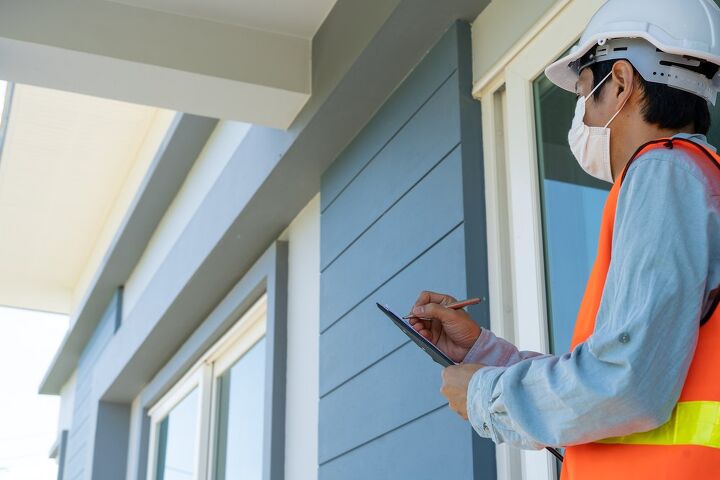






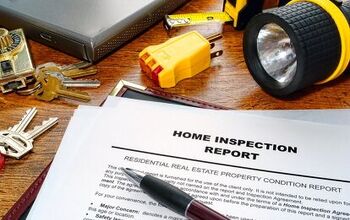

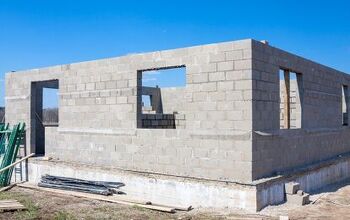


![Cost To Drill A Well [Pricing Per Foot & Cost By State]](https://cdn-fastly.upgradedhome.com/media/2023/07/31/9074980/cost-to-drill-a-well-pricing-per-foot-cost-by-state.jpg?size=350x220)





